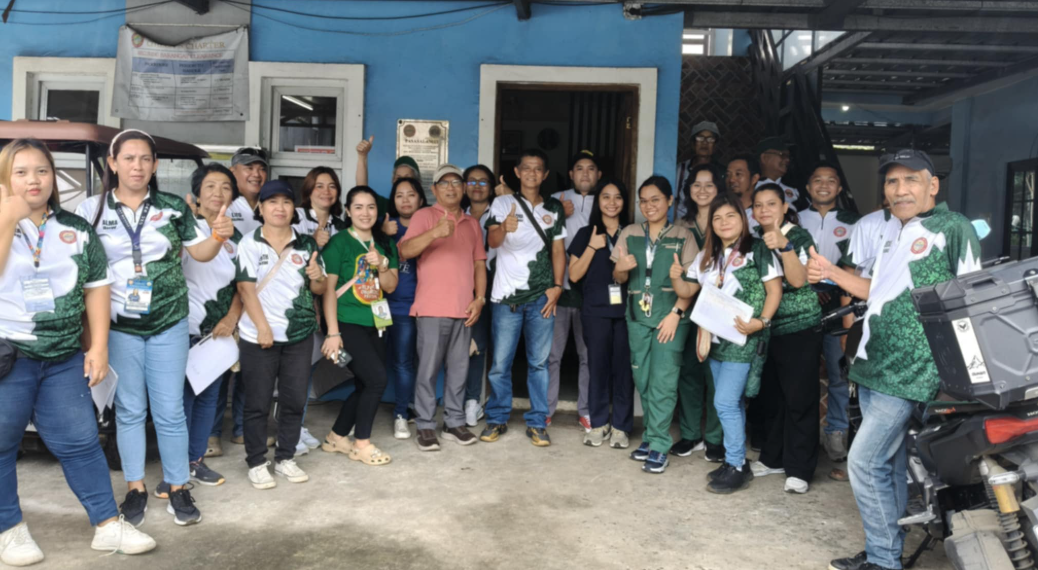(D2) ZERO OPEN DEFECATION: DENGUE, INFORMATION DISSEMINATION, AND THE GENEROSITY OF ALFONSO RESIDENTS
Ma'am, paano niyo po tinatapon and dumi at diaper ni baby?
That is the question I asked multiple times today. Medicine does not only involve the human body. It is highly influenced by multiple facets that contributes to the well-being of a person. Today, I learned the importance of a clean environment, health education, and social interaction for future Doktors ng Bayan.
We started the day with a talk led by one of the health workers, Sir John Ren, about dengue. Doctor Elie also mentioned out of the hat facts about mosquitos that I never heard of, but she emphasized, is needed for future dengue surveillance. I did not know that a mosquito could fly up to 5 feet, nor they could travel a distance of 20 feet. It was a very informative experience for me. As we finished the dengue discussion, I volunteered to go with Ma'am Cynthia, Ma'am Telay, and Sir John Ren for monitoring Zero open defecation in three different Barangays. Doc Elie proudly mentioned that the municipality of Alfonso was able to attain a grade 1 level of ZOD (Zero Open Defecation) despite the whopping 32 barangays. Alfonso was one of the earliest to be recognized in CALABARZON. Of course, along with the award, is the responsibility to maintain the ZOD.
We went to three Barangays, Brgy. Mangas I, Marahan I, & Marahan II. We had to go to every household for monitoring together with Ma'am Jackie, a provincial health officer, and Sir Barbuco, Provincial Sanitary inspector. We were also tasked to check possible breeding sites of Dengue and to remind each barangay to be mindful of possible breeding sites. The walk was tedious. I was given the opportunity to do the survey myself and to check the condition of each toilet bowl. We focused on households where there are new babies and bedridden who use diapers. We asked them how they dispose the diapers along with the feces itself. It was a routine, asking each household of the number of persons living, if there is adequate water supply for toilets, and if they dispose diapers and stools properly. But what I noticed was how Ma'am Telay, the RHU nurse in charge for surveys, talked with each household members. It's like a pattern for her: first, she asks them of their basic information, next, she talks with them casually about their lives as if they are long term friends, then she asks the necessary questions for checking the sanitation of the house. Lastly, she never leaves the house without informing them of the proper disposal of waste and how to watch out for dengue. Every time they finish a household visitation for each barangay, they meet up with all barangay workers to report everything they noticed. The barangay workers mentioned that they cleaned most of the barangay themselves while laughing. Sir Barbuco responded and explained that the Barangay officials should not do the labor itself every time, but they should teach all household to clean their areas.
This experienced made me realize that serving the public does not mean spending yourself dry just to help the other person. Sometimes, we need not to help them ourselves, but to teach them how to help themselves. That is why information dissemination is important. Health education is important. We can improve the health of each individual if we just teach them how to do it. We can prevent open defecation if we tell them the proper way of waste disposal. It should always start with education and sharing the right information. As usual, the generosity of the people of Alfonso was demonstrated today when all the three barangays gave us food to eat and even fruits to take home. It was so wholesome and joyful to do the labor of going from one household to another, even when my shoes were streaked with mud.





Comments
Post a Comment